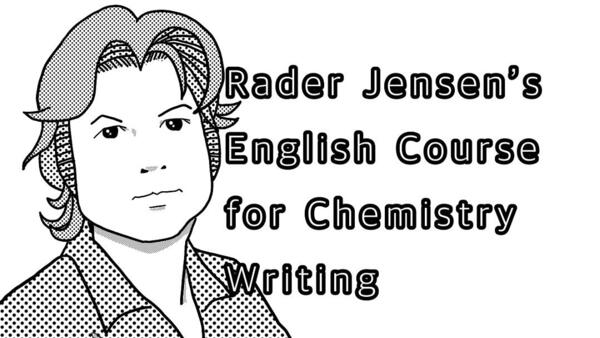CSJ Journals
[化学論文のための英語講座] 第67回:句点
(English version is here.)
英語での句点は日本語と同じく文の終わりを表します。省略するときにも使います。以下の例を見ましょう。
| Bldg. | Building |
| Prof. | Professor |
| Dr. | Doctor |
| etc. | et cetera |
| Mt. | mountain |
散文を書く場合、省略するときに必ず句点を使いますが、化学論文では専門用語が省略されることが多いので、句点が使用されないことが非常に多いです。以下の例を見ましょう。
| 9-BBN | 9-borabicyclo[3.3.1]nonyl |
| DIBALH | diisobutylaluminium hydride |
| equiv | equivalent |
| LCAO | linear combination of atomic orbitals |
| NOESY | nuclear Overhauser effect spectroscopy |
| PT | perturbation theory |
| redox | reduction-oxidation |
| TBAF | tetrabutylammonium fluoride |
| temp | temperature |
| vis | visible |
| vol | volume |
| wt | weight |
簡単に言えば、化学的な文脈では、省略するときは句点が使われることは滅多にありません。もう一つ重要な点があります。散文では文節の終わりで句点を付ける事がありますが、化学論文では未完全な文で句点は使いません。つまり、主語と述語がないと、句点は使いません。
次回は読点についてです。
Like in Japanese, in English a period, or full stop, shows the end of a sentence. A period is also used in abbreviations. Let us look at the following examples.
| Bldg. | Building |
| Prof. | Professor |
| Dr. | Doctor |
| etc. | et cetera |
| Mt. | mountain |
When writing prose, a full stop is always used when abbreviating, but in chemistry papers technical terms are often abbreviated, and a period is very often not used. Let us look at the following examples.
| 9-BBN | 9-borabicyclo[3.3.1]nonyl |
| DIBALH | diisobutylaluminium hydride |
| equiv | equivalent |
| LCAO | linear combination of atomic orbitals |
| NOESY | nuclear Overhauser effect spectroscopy |
| PT | perturbation theory |
| redox | reduction-oxidation |
| TBAF | tetrabutylammonium fluoride |
| temp | temperature |
| vis | visible |
| vol | volume |
| wt | weight |
Simply stated, in a chemistry context, a period is often not used when abbreviating. There is one more important point. In prose, there are times when a full stop will appear at the end of a clause, but in a chemistry paper an incomplete sentence will not use a period. That is to say, if a subject and predicate are not present, a period is not used.
At next time, we will post about Comma.
